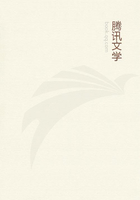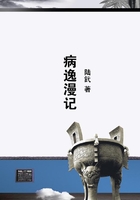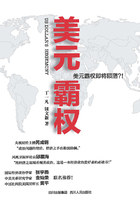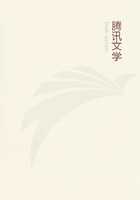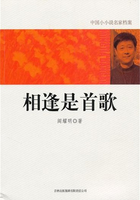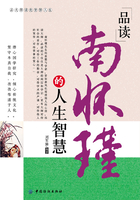Believing as he did that justification depended upon faith alone, he contended that the Sacraments were mere ceremonies by which a man became or showed himself to be a follower of Christ. They were devoid of any objective virtue, and were efficacious only in so far as they guaranteed that the individual receiving them possessed the faith necessary for justification. But it was principally in regard to the Eucharist that the two reformers found themselves in hopeless disagreement. Had Luther wished to be consistent he should have thrown over the Real Presence as well as Transubstantiation, but the force of tradition, the fear that any such teaching would arouse the opposition of the people, and the plain meaning of the texts of Scripture forced him to adopt a compromise. "Had Doctor Carlstadt," he wrote, "or any one else been able to persuade me five years ago that the sacrament of the altar is but bread and wine he would, indeed, have done me a great service, and rendered me very material aid in my efforts to make a breach in the Papacy. But it is all in vain. The meaning of the texts is so evident that every artifice of language will be powerless to explain it away." He contended that the words "This is My body and This is My blood" could bear only one meaning, namely, that Christ was really present, but while agreeing with Catholics about the Real Presence of Christ in the Eucharist, he rejected the doctrine of Transubstantiation, maintaining in its place Consubstantiation or Impanation.
Though Luther insisted so strongly on the Real Presence, it is not clear that in the beginning he had any very fixed views on the subject, or that he would have been unwilling to change any views he had formed, were it not that one of his lieutenants, Carlstadt, began to exercise his privilege of judgment by rejecting the Real Presence.
Such an act of insubordination aroused the implacable ire of Luther, who denounced his former colleague as a heretic, and pursued him from Wittenberg and Jena, where he had fled for refuge. In the end Carlstadt was obliged to retire to Switzerland, where his doctrine found favour with the Swiss reformers.
From the beginning of his campaign Zwingli realised that the Real Presence was not in harmony with his theory of justification, and hence he was inclined to hold that the Eucharist was a mere sign instituted as a reminder of Christ's death. But in view of the clear testimony of the Holy Scripture he was at a loss how to justify his position. At last by pondering on other passages that he considered similar to the text "This is My body," where the word "is" should be interpreted "signifies," he contended that the true meaning of Christ's words at the Last Supper is, "This signifies My body."Oecolampadius agreed with this interpretation, though for a different reason, comparing the Blessed Eucharist to a ring that a husband going away on a long journey might give to his wife as a pledge and reminder of his affection.[4]
Luther resented bitterly such a theory as an attack upon his authority, especially as Zwingli refused to allow himself to be brow-beaten into retracting his doctrine. Instead of submitting to the new religious dictator, Zwingli sought to justify himself by the very principle by which Luther justified his own revolt against the Catholic Church. He contended that Luther's theory of justification involved logically the rejection of the Eucharist as well as of the other Sacraments, that the Scriptural texts could be interpreted as he had interpreted them, and that he was not bound to take any cognisance of the Christian tradition or of the authority of the councils. He complained that Luther treated himself and his followers as heretics with whom it was not right to hold communion, that he proscribed their writings and denounced them to the magistrates, and that he did precisely towards them what he blamed the Pope for doing to himself.
Luther found it difficult to meet this line of argument. Much against his will he was obliged to support his opinions by appealing to the tradition of the Church and the writings of the Fathers, which latter he had denounced as "fetid pools whence Christians have been drinking unwholesome draughts instead of slaking their thirst from the pure fountain of Holy Scripture."[5] "This article (The Eucharist)," he wrote, "is neither unscriptural nor a dogma of human invention. It is based upon the clear and irrefragable words of Holy Writ. It has been uniformly held and believed throughout the whole Christian world from the foundation of the Church to the present time. That such has been the fact is attested by the writings of the Holy Fathers, both Greek and Latin, by daily usage and by the uninterrupted practice of the Church. . . . To doubt it, therefore, is to disbelieve the Christian Church and to brand her as heretical, and with her the prophets, apostles, and Christ Himself, who, in establishing the Church said:
'Behold I am with you all days even to the consummation of the world.'"[6]
The opposition of Luther did not put an end to the controversy. The Zwinglian theories spread rapidly in Switzerland, whence they were carried into Germany, much to the annoyance of Luther and of the Protestant princes for whom religious unity was necessary at almost any cost. Luther would listen to no schemes of compromise. He denounced the Zwinglians in the most violent terms, as servants of the devil, liars, and heretics for whose salvation no man should pray.

